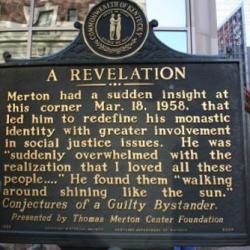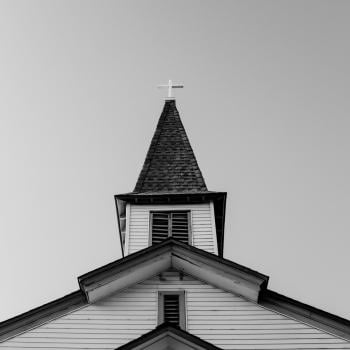 By Philip Clayton
By Philip Clayton
Mark Twain is said to have quipped in 1897, "The rumors of my death have been greatly exaggerated." Today rumors are rampant of the impending death of the church. But, although unimaginable transformations await us in the coming two decades, this is not one of them.
Karl Marx thought that religion, like the state, would shrivel away in the utopian society. Yet the human species without religion is about as likely as the human species with a perfect government. (We can't even create a functional government!) Nor is it likely that the world will be pervaded by religions and religious practices but that Christianity won't be numbered among them. In 2030 churches will still exist, along with some of the other institutions that define Christianity today.
The questions are: which institutions will still be around? What radically new forms of Christian existence will arise in the coming twenty years? And, most importantly, what new forms of Christian life and practice do we need now? What forms resonate with today's new types of believers, non-believers, and seekers?
"Spiritual but Not Religious"
A major national survey recently published in USA Today shows that 72 percent of "Millennials" -- Americans between the ages of 18 and 29 -- now consider themselves "spiritual but not religious." Even among those who self-identify as practicing Christians, all of the traditional forms of Christian practice have sharply declined from previous years: church attendance, Bible study, prayer. Doubts are higher, and affiliation with the institutional church is sharply lower. All of us who are still connected with local congregations already know this pattern, up close and personal. Still, it's sobering to see the trends writ large; after all, we're talking about almost three-quarters of younger Americans!
The decline of traditional churches and denominations will presumably continue, so that by 2020 the effects will be as devastating in the U.S. as they already are in Europe. (On a typical Sunday, for example, 0.5 percent of Germans attend church.) Numerically, two-thirds or more of mainline churches will close their doors or struggle on without a full-time pastor. Denominations will merge in order to be able to maintain even minimal national staffs and programs. A larger and larger proportion of those who still go to church will attend large "mega" churches, those with 2,000 or more attendees on an average Sunday.
But the American focus on spiritual practices will not die. People will continue to report that spirituality is extremely important to them. Nor will they pursue these practices in isolation. New forms of association and shared practice will arise; new religious movements will attract participants; links between religious traditions -- in seminaries,in national ministries, and in local congregations -- will become more frequent. Christians who resist these trends will become increasingly strident, and increasingly hostile toward the modern world, even as their numbers decrease. And, of course, discussion of religious themes -- and of what it means to be a Christian in today's world -- will grow in intensity and urgency.
Is It a New Theology That We Need?
I used to think that the answer was a new theology. My emphasis on constructing a theology was similar to the protagonist in Field of Dreams: "if we build it, they will come [back]."
Let's put it on the record: I was wrong. Christianity's problem today is not theology. Sure, we'll tweak and improve our formulations of what the Christian tradition is all about. We'll learn to be non-dogmatic and open to different beliefs and religions. All this matters. But let's face it: mainline Protestants have by and large already "been there, done that." It won't be a new theological text, or a new school within systematic theology, that will turn the ebb tide of our day.
Instead, the traditional word for what we need is ecclesiology, which means: new visions of what the church is and what it does. In Transforming Christian Theology, I summarized features of "missional" churches, drawing on proposals made by Brian McLaren and others. Let me formulate my "call to the church" as bluntly as possible:




